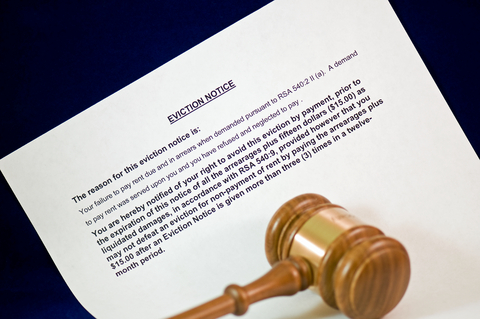How to Write and Serve Tenant Eviction Notices in Alabama

Alabama Evictions
Alabama evictions require landlords to provide two types of notice to tenants: The first notice informs the tenant of the landlord's intention to file an eviction and gives the tenant the chance to change her behavior, or pay her rent, to prevent an eviction. If the tenant doesn't take action, the landlord can file for an eviction, but must have the tenant served with a court summons.
Lease or Rental Agreement Termination
If a landlord decides not to renew a lease, she must give the tenant notice of her decision in the time period specified by the lease agreement. If the tenant is renting on a month-to-month basis, the landlord has to give the tenant at least 30 days notice or seven days notice for a week-to-week arrangement.
Abandonment Notices
When a landlord suspects that a tenant has abandoned the property, he must send a notice that gives the tenant two weeks to respond. If the tenant does not respond, the landlord can assume that the tenant abandoned the property and can remove the tenant's possessions.
Quit or Cure Notices
When a tenant violates the lease in some way, or fails to pay rent, the landlord must send a “quit or cure” notice. This is a written notice that informs the tenant of the landlord's intention to evict the tenant if the problem isn't resolved. In cases where the tenant is late with rent, the notice must give the tenant seven days to get caught up before the landlord can file for eviction. If the tenant is violating property rules, such as by making noise or refusing to clean up a mess, the landlord must give the tenant 14 days to get the situation under control before filing for eviction.
Helpful Links
Alabama Legal Help: Eviction
Eviction Notices
If a tenant does not pay his rent or change his behavior, the landlord can go to court. Once this happens, the tenant must be served with a legal eviction notice. The tenant then has 7 business days to file a response with the court. If the tenant doesn't file a response, the landlord can have the sheriff evict the tenant soon after the seven-day time frame expires. If the tenant does file a response, the case goes to court, and the judge makes a decision whether to evict the tenant or allow him to stay.








